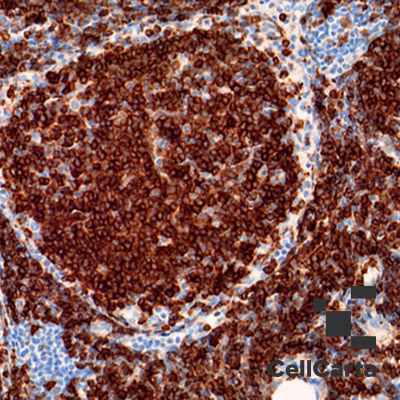Alternative Name(s): Cluster of Differentiation 79b, B-Cell Antigen Receptor Complex-Associated Protein Beta Chain, IGB, AGM6, B29

Test Description
CD79b is a component of the B-lymphocyte antigen receptor, which is a multimeric complex consisting of CD79b, CD79a, and a surface immunoglobulin. The protein is expressed on nearly all B-cell surfaces. Depending on the maturation state of the B-cell, CD79b can be expressed either in the cytoplasm or on the cell surface. In cooperation with CD79a, CD79b initiates the signal transduction cascade activated by the B-cell antigen receptor complex (BCR) which leads to internalization of the complex, trafficking to late endosomes and antigen presentation. CD79b is overexpressed in some B-cell lymphomas, such as non-Hodgkin lymphoma, Burkitt’s lymphoma and acute lymphoblastic leukemia.